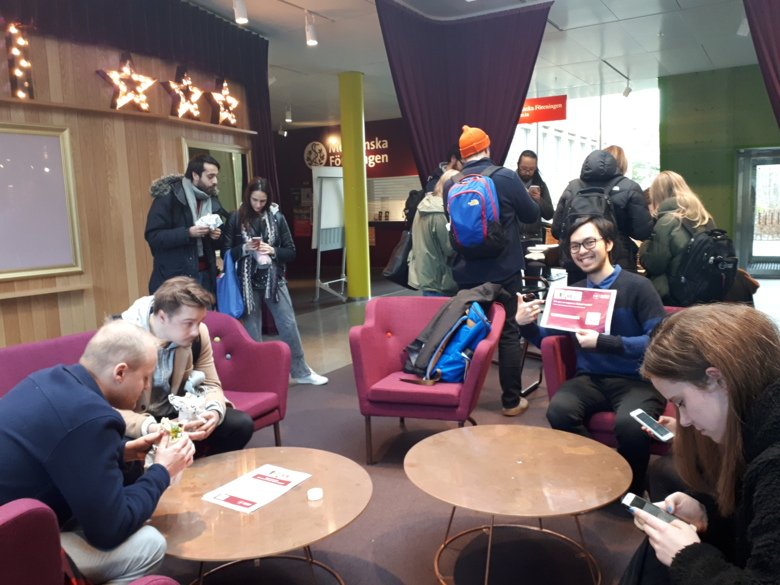Student engagement in the Internationalisation of the curriculum (IoC) process
Our students are our greatest source of inspiration, find out how you can engage students into the IoC process!
According to KI’s Strategy 2030, education needs to align with the Sustainable Development Goals (SDGs). One way of doing this is through internationalising the education at KI.
Students as partners
We train and support our students to go out into the world as healthcare professionals who can provide the best treatment and care, but to also be global citizens, adapting to the global environment they encounter daily and giving them the tools to work in a diverse environment, making it inclusive, equitable and sustainable.
We consider students to be our partners and therefore, we reach out to them to get their feedback and build on that, integrate their ideas and suggestions into the tools we develop.
Workshop on Internationalising the curriculum
This workshop took place after the project team had analysed the data from the teacher workshop. All students came from our target study programmes, both English- and Swedish-taught programmes. They were asked to reflect on the linguistic and cultural diversity present in their classroom, about their dreams and aspirations. During the workshop we brainstormed possible improvements or suggestions the students had for their study programmes:
- More mutual learning (peer learning) and collaboration. Diversity should be used as a tool with more intentionality throughout all KI programmes.
- Recognise and harness the diversity in the classroom, even in Swedish-taught programmes. All KI students need to be equipped with international/global/intercultural competences, not just the few.
- More integration of the students from all the different KI programmes, whether the programme is taught in Swedish or English. These are great opportunities for interprofessional learning and for stepping out of your “silo”.
- More support to international students in their interaction with the Migration Authorities, the health-care system, etc. The frustration this lack of knowledge/understanding causes has an indirect negative effect on the student’s well-being and, in turn, on their studies.
- Teachers need to know how to manage critical incidents and manage conflict more effectively, and train students in how to do this.
- More language support in both Swedish and in English across programmes, when and where it is needed.
During the workshop, students were asked to draw what internationalisation means to them, here is a sample of their productions:
Workshop on Intercultural competence
How do we reach the students and create a platform to discuss their ideas? At the start of their life as a KI student, an introduction event is organised, introducing KI to each student. During this week the students are given a workshop where they discuss the different aspects of culture, from assessing their own intercultural skills, understanding what culture is, what critical incidents are and how to go about resolving them.
Concepts and tools
This workshop gives the student the opportunity to understand the concept of culture, and the diversity around them, which can sometimes lead to challenges which may impact their studies. This workshop gives them helpful tools, which they can apply when these challenges occur, or help them to avoid creating an incident which stems from misunderstanding or just lack of understanding and open them up to empathy and collaboration. These skills will support them not only during their life as students but also as future professionals in whatever field of study and profession they choose to follow.
Follow up
This interaction is revisited during the second year of study where students are brought together in a focus group to discuss if, when and how they have applied the tools they were taught during their introduction week. We listen to their feedback on whether they found it useful and how they applied what they learned during the workshop. The students agree that this is an integral part of their learning and that these tools have helped them make their interaction with fellow students smoother through the recognition of the diversity around them, the importance of understanding and collaboration. In other words, the road to global citizenship.
Decolonizing Global Health
The continuous development of the tools led to the start of a conversation with students from Karolinska Decolonizing Global Health where discussions on how to collaborate and develop the workshop/s, to create a platform where Decolonizing Global Health, may be brought forward to open a discussion and find ways to integrate into the learning.
Gapminder test
One of the goals in the KI Strategy 2030 was to integrate global health perspectives in compulsory components in all study programmes. This way we can explore further what our students already know about global health. Using the questions in the Gapminder test a campus wide survey was carried out every Autumn for 3 consecutive years (2018-2020) and the results gave us an insight to the student’s knowledge on Global Health.

